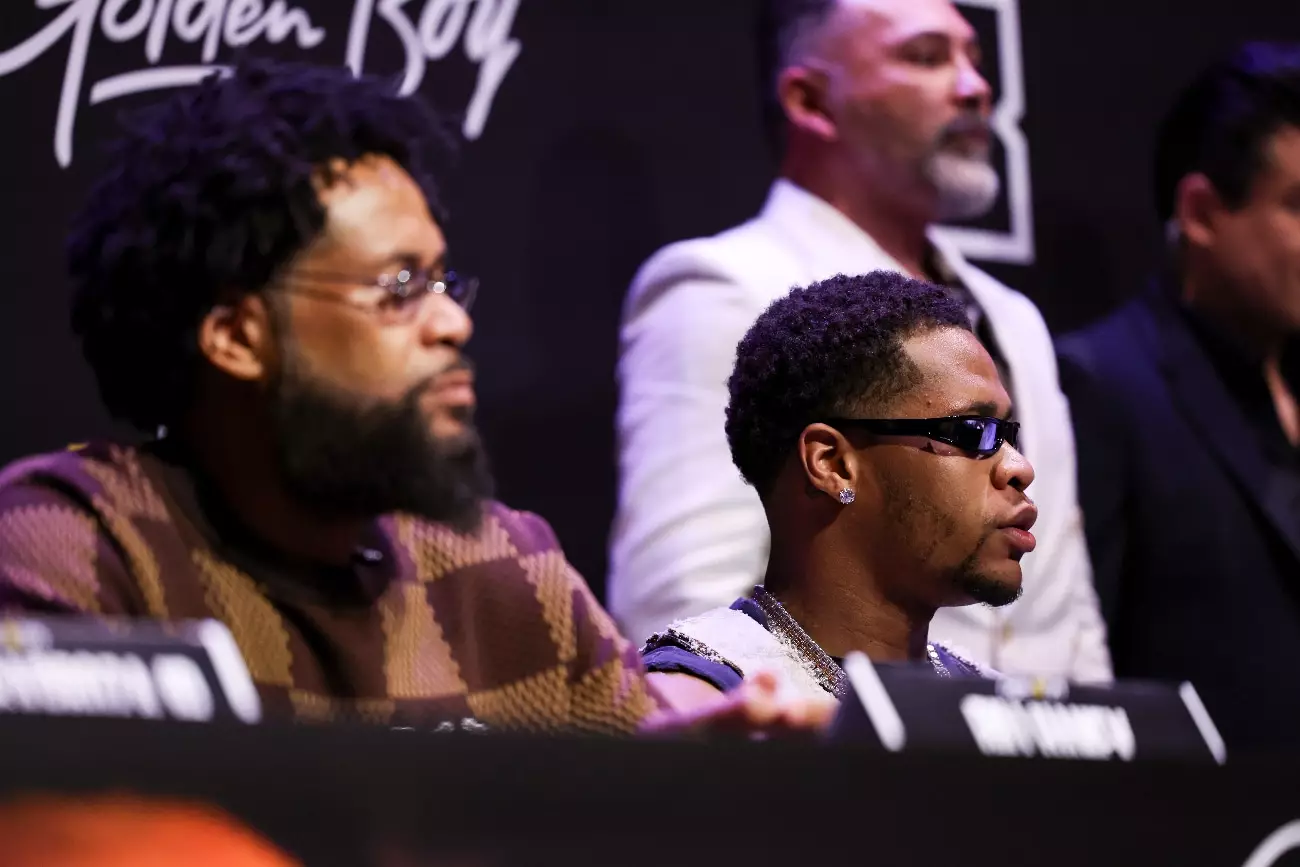The realm of professional boxing has always been both exhilarating and contentious, marked by fierce rivalries, indelible triumphs, and a shadow cast by the specter of performance-enhancing drugs (PEDs). Recently, the ongoing legal battle between Bill Haney, his son Devin, and rising boxing star Ryan Garcia has underscored the darker elements of this sport. With allegations of drug use hanging heavily over Garcia’s recent victory, this case carries implications not only for the fighters involved but for the integrity of boxing as a whole.
Bill Haney has publicly affirmed that the lawsuit he has initiated alongside Devin against Ryan Garcia is still very much alive. At the heart of the controversy is the allegation that Garcia tested positive for Ostarine—an anabolic agent recognized for its performance-enhancing capabilities—following their fight on April 15, where he triumphed against Devin Haney via a 12-round majority decision. The central argument is that Garcia’s superior performance was not solely a product of skill but rather aided by an illicit substance, raising the stakes of the bout for the Haney camp.
Bill Haney has been disheartened by the notion that a fighter could manipulate the performance landscape through illegitimate means, contending that Garcia’s use of Ostarine contributed to his victory. While Bill’s criticisms are rooted in genuine concern for athlete integrity, they also reflect a desire for justice that could potentially recalibrate boxing’s stance on doping violations. Should the Haneys emerge victorious in their lawsuit, it would not only seek financial restitution but also aim to establish a precedent that could discourage future drug use in the sport. The prospect of winning millions could be immensely rewarding; however, they must grapple with the reality that victory in the courtroom may not lead to the anticipated rematch with Garcia, as promoter Oscar De La Hoya has indicated a reluctance to set it up in the immediate future.
The controversy is deepened by the ongoing discussions within the boxing community regarding the ramifications of performance-enhancing drugs. Bill Haney has articulated a clear stance on the matter. He insists that while fighting is inherently brutal, the presence of PEDs introduces an element of unfairness that should be wholly unacceptable within the sport. “There’s no place for drugs in boxing, and we’re standing on that,” Bill emphasized, highlighting the wider implications of drug usage for not just competitive fairness, but also for the health and safety of fighters.
Interestingly, many boxing analysts and fans concede that Garcia’s left hook—a key factor in his victory over Devin—would have posed a significant threat regardless of the presence of Ostarine in his system. Several observers have pointed out that Devin Haney had already shown vulnerabilities in prior fights, suggesting that any deficiencies were already apparent before the controversial bout. This raises an important question: to what extent does drug use alter the inherent abilities of a fighter versus exacerbating existing issues?
The Future of Devin Haney
For Devin Haney, the implications of this ongoing legal dispute may have a significant impact on his financial future and career trajectory. With a protracted wait for a rematch against Garcia, some speculate whether Devin’s decision to refrain from fighting during this period will cost him valuable opportunities to enhance his skill set and earnings. There is a palpable tension between a desire for vindication from alleged wrongdoing and the pressing need for fighters to stay active and relevant in an ever-evolving sport.
Bill Haney’s assertions that they are preparing tactically for a rematch, particularly targeting Garcia’s left hook, further emphasize the need for them to adapt and overcome their previous weaknesses. The looming lawsuit might serve as a double-edged sword for Devin, positioning him as a fighter focusing on readiness and resilience while also inviting scrutiny regarding his ability to perform without the added factor of a rematch.
As both the legal landscape and the sporting arena evolve, the case of Haney versus Garcia serves as a bellwether for the broader boxing ecosystem. As the Haney camp pursues their passion for justice, one must remain cognizant of the interplay between competitive spirit and the ethical dimensions of sport. The implications of this lawsuit extend far beyond the immediate conflict—it fuels a larger conversation about fairness, integrity, and the future direction of professional boxing itself. Whether Bill and Devin Haney achieve their desired outcomes remains to be seen, but the ripples of this controversy will resonate throughout the industry, influencing how both fighters and fans perceive the sanctity of the sport.


Leave a Reply